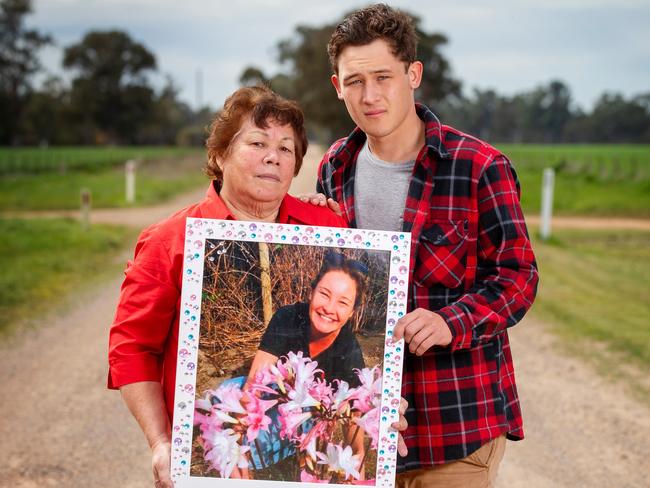Killer who drove over his fiance after argument could be freed just nine months after his sentencing
A man who killed his fiance by driving over her with his car has applied for parole just nine months after his sentencing. Her family fear his violence may continue if released.
- Australia’s new virus detecting device as racism spikes in China
- How to keep kids busy without spending money
A man who ran over his fiance and left her for dead could walk free just nine months after his sentencing in September.
Mother-of-four Alicia Little was killed at her rural property in Kyneton, Victoria, in December 2017 when her fiance Charles McKenzie Ross Evans hit her with his car following a heated argument.
Although initially charged with murder, on a plea-deal the Department of Public Prosecutions downgraded Evans’s charges to dangerous driving causing death and failing to render assistance after a motor vehicle accident.

With time already served, the four-year sentence handed down last year sees Evans eligible for parole in June.
Ms Little’s family were notified this week Evans had applied for release.
“I think it’s appalling,” Alicia’s mother, Lee Little, said.
“This is a person who has taken someone’s life and left them there to die.
“I heard someone get more for a driving offence the other day and they hadn’t even killed anyone.”

In documents tendered to the court, relatives revealed during Ms Little’s four-year relationship with Evans there were repeated incidents of domestic violence, often resulting in hospitalisation.
Ms Little had left the relationship once but returned after Evans told her he had sought professional help.
On the day she was killed, Mrs Little stayed in regular contact with her daughter, concerned for her welfare, and sought advice from Domestic Violence hotline, 1800-RESPECT.
“Alicia had every bone in her body broken and you blame yourself. I don’t know how many times we asked her that day if she wanted us to pick her up.


“But she kept on saying, ‘Mum, I’ve got this. I’m leaving. There’s no respect’.”
Evans had a history of domestic violence with his former wife, Kim Birmingham, who made repeated reports to police and left the relationship fearing for her life.
Evans had been convicted of domestic violence offences in NSW but having moved interstate there was no warning of his previous convictions.
When considering a prisoner’s parole, Victoria’s Adult Parole Board takes into account a number of factors before greenlighting release.

“Due to strict confidentiality provisions in the Corrections Act 1986, the Adult Parole Board is unable to provide confidential or personal information about any prisoner,” a spokesman said when asked about Evans’ application.
“When deciding whether to grant or deny a prisoner parole, the Adult Parole Board’s paramount consideration is always the safety and protection of the community.”
“I have no fear he will do it again,” Mrs Little said, who hopes the coronial inquest into Alicia’s death will acknowledge the domestic violence suffering she endured.
“I will be her voice and my family will be her voice. She was too scared to stand up to him.”


